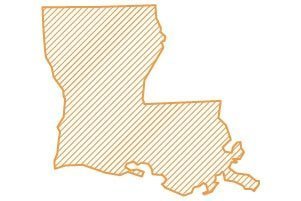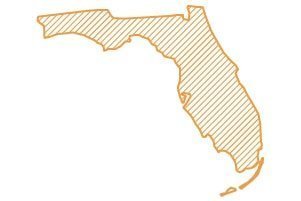Everything’s bigger in Texas, and that includes the number of universities offering master’s in psychology programs. As one of the largest states in the U.S., Texas is home to numerous universities with esteemed psychology programs.
Many of these universities have also been ranked highly by the U.S. News & World Report, making them an attractive option for prospective students. In Texas, colleges and universities provide a wide range of Master’s And Ph.D in psychology in areas such as psychological services, school psychology, clinical psychology, and neuropsychology.
With the state’s growing population, completing a master’s in psychology program in Texas can lead to a plethora of job opportunities in the field and can help you to become a Licensed Psychologist in Texas.
Texas Master’s in Psychology Programs
Starting your academic journey at a university in Texas can be an exciting yet overwhelming experience. With numerous options available, selecting the right university can be a daunting task.
To ensure that you make the most informed decision possible, it’s crucial to compare factors such as rankings and costs of the various universities. By doing so, you can easily narrow down your options and identify the university that offers the best academic and financial value to help kick-start your future success.
Master of Arts in General Psychology
University of Texas Permian Basin – Master of Arts in Psychology

The Master of Arts in Psychology program at UTPB is accredited by the Southern Association of Colleges and Schools Commission on Colleges (SACSCOC). The Clinical Psychology concentration is designed to meet the requirements for licensure as a Licensed Psychological Associate (LPA) in Texas.
In addition to the concentration-specific courses, students are required to complete core courses that cover topics such as research methods, human development, social psychology, and psychopathology. The program also offers elective courses, providing students with the opportunity to explore their interests and gain a well-rounded education in the field of psychology. Throughout their coursework, students benefit from individualized mentorship and hands-on experience through small class sizes and research opportunities.
- Location: Odessa, Texas
- US News Ranking: 55 out of 120 Among Best colleges in Regional Universities in West
- Cost Per Credit: We advise you to contact directly by their email at admissions@utpb.edu with any questions on program cost & related learning fees.
Houston Christian University – Master of Arts in Psychology

Huntington University’s Master of Arts in Psychology program is accredited by the Higher Learning Commission (HLC) and the Indiana Department of Education (IDOE). Students of the program are required to accomplish 37 hours of graduate coursework.
To successfully complete the program, students must maintain a minimum GPA of 3.0 and achieve a grade of “C” or higher in all courses. The curriculum includes courses in areas such as human development, psychopathology, research design, and ethics in psychology. The program also provides students with opportunities for practical experience and research projects.
- Location: Sharpstown section 3A, Houston, Texas
- US News Ranking: 64 in Regional Universities West
- Cost Per Credit: The tuition fee for each 3 credit hour course in the Master of Arts in Psychology program is $1,800, unless there are any special specifications.
Sam Houston State University – Clinical Psychology/General Psychology

Sam Houston State University (SHSU) offers two Master of Arts degree programs in psychology: Clinical Psychology (MACP) and General Psychology (MAGP). Both programs are accredited by the Southern Association of Colleges and Schools Commission on Colleges (SACSCOC).
The MACP program is designed to prepare graduate students for careers in the mental health field or to continue into Clinical Ph.D. programs. It requires the completion of 48 semester credit hours of coursework, including core courses in psychological assessment, intervention, and ethics, as well as clinical practicum experiences. Elective courses are also available to allow students to tailor their education to their specific interests and career goals.
Meanwhile, the MAGP program is focused on the scientific sub-disciplines of psychology and involves several electives that allow students to pursue personal academic and research interests. It requires the completion of 36 semester credit hours of coursework, including core courses in research methods, statistics, and psychological theories. Elective courses are also available, including topics such as social psychology, neuroscience, and developmental psychology.
- Location: Huntsville, Texas
- US News Ranking: 263 in National Universities
- Cost Per Credit: State students are required to pay a nominal fee of $50 per semester for tuition, whereas nonresident students are charged $458 per semester credit hour.
Click here for Masters in Clinical Psychology programs in the state of Texas.
University of Dallas – Master of Psychology

Discover the essence of the human experience with the University of Dallas’ Master of Arts degree in Psychology program. This program offers a one-of-a-kind approach that blends philosophical and scientific perspectives. With accreditation from the Southern Association of Colleges and Schools Commission on Colleges (SACSCOC), students can rest assured that they are receiving a top-quality education.
To earn the degree, students must complete 36 credit hours of coursework that includes research methods, statistics, and various areas of psychology, such as personality theory, social psychology, and developmental psychology. The program also includes an emphasis on the integration of Catholic intellectual tradition and psychology, allowing students to explore the intersection of faith and psychology.
- Location: Irving, Texas
- US News Ranking: 6 in Regional Universities West.
- Cost Per Credit: Per credit hour tuition fee for Psychology Practicum is $755, and the cost for Graduate Readings is $75.
Master of Arts in Clinical Psychology/Counseling Psychology
Midwestern State University – Master of Arts in Clinical Psychology/Counseling Psychology
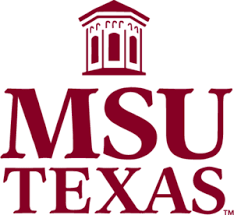
The Midwestern State University (MSU) offers a Bachelor of Science in Psychology program. The program is accredited by the Southern Association of Colleges and Schools Commission on Colleges (SACSCOC). The program requires the completion of 120 credit hours, including general education courses, major courses, and electives.
The curriculum for the Bachelor of Science in Psychology program includes foundational courses in areas such as statistics, research methods, human development, and abnormal psychology. Moreover, students can choose from a range of elective courses to further their knowledge in specialized areas such as social psychology, cognitive psychology, and clinical psychology.
- Location: Wichita Falls, Texas
- US News Ranking: 24 in Top Public Schools.
- Cost Per Credit: Midwestern State University charges an annual tuition fee of $6,770.
Southwestern Assemblies of God University – Master’s Degree in Clinical Psychology

The Master of Arts in Clinical Psychology program at Southwestern Assemblies of God University (SAGU) offers students a comprehensive education in the field of psychology. The program is accredited by the Southern Association of Colleges and Schools Commission on Colleges (SACSCOC).
Students are required to complete 63 credit hours, including courses in counseling theories, assessment techniques, and research methods. The program also provides students with the opportunity to participate in field experiences and internships, which allow them to gain practical experience in the field of clinical psychology.
- Location: Waxahachie, Texas
- US News Ranking: 90-117. in Regional Universities West.
- Cost Per Credit: Tuition for graduate-level courses, whether taken online or on-campus, is set at $595 per credit hour.
Texas A&M International University – M.A. in Counseling Psychology

The Master of Science in Counseling Psychology program at Texas A&M International University (TAMIU) offers students an opportunity to gain the knowledge and skills needed to provide counseling services to diverse populations. The Council for Accreditation of Counseling and Related Educational Programs (CACREP) has accredited the Master of Science in Counseling Psychology program at Texas A&M International University.
With a curriculum that covers topics such as individual and group counseling, crisis intervention, and psychopharmacology, students are equipped to address a range of mental health concerns. This program is 60 credit hours in length and requires completion of core courses, practicum experiences, and a supervised internship. Upon graduation, students are eligible to apply for licensure as Licensed Professional Counselors (LPC) in the state of Texas.
- Location: Laredo, Texas
- US News Ranking: 57 in Regional Universities West
- Cost Per Credit: Graduate students who are residents are charged $77 per semester credit hour for tuition. On the other hand, non-resident and international students are charged $459 per semester credit hour, while graduate non-resident and international students pay a slightly higher rate of $486 per semester credit hour for tuition.
Angelo State University – M.S. in Counseling Psychology

Angelo State University offers a Master of Science in Counseling Psychology degree program designed to prepare students for careers in the field of counseling. The program is accredited by the Council for Accreditation of Counseling and Related Educational Programs (CACREP), ensuring that it meets high standards for academic rigor and professional preparation.
The MS in Counseling Psychology degree program at Angelo State University requires the completion of 60 credit hours, including courses such as counseling theories, ethics and professional issues in counseling, multicultural counseling, and group counseling. Graduates of the program are prepared to pursue licensure as professional counselors in the state of Texas and can also pursue doctoral-level studies in counseling psychology or related fields.
- Location: San Angelo, Texas
- US News Ranking: 85 out of 120 Regional Universities West
- Cost Per Credit: Based on two semesters with nine credit hours each, the estimated tuition and fees are $7,247 for Texas residents and $14,590 for non-residents. For a more precise calculation, please use the tuition estimator provided by the university.
University of Texas Rio Grande Valley – M.A. in Clinical Psychology

The Master of Science (M.S.) in Psychology program at the University of Texas Rio Grande Valley (UTRGV) prepares students for doctoral studies or employment in fields such as mental health, human services, education, and business. The program is accredited by the Southern Association of Colleges and Schools Commission on Colleges (SACSCOC).
To complete the program, students must earn 36 credit hours, including core courses in research methods, statistics, and various areas of psychology such as developmental psychology, social psychology, and cognitive psychology. Students have the option to choose between a thesis or non-thesis track. The thesis track requires students to conduct original research and defend a thesis, while the non-thesis track requires students to complete a comprehensive exam.
- Location: Edinburg, Texas
- US News Ranking: 299 out of 443 National Universities
- Cost Per Credit: For graduate courses, the cost per credit hour depends on whether you are a resident or non-resident of Texas. In-state residents pay $528.30 per credit hour, while non-residents pay $1,027.80 per credit hour. To give some examples, if you take one 3-credit-hour course in a semester, the cost for a resident would be $1,584.89, and for a non-resident, it would be $2,808.89.
For two 3-credit-hour courses in a semester, the cost for a resident would be $2,875.58, and for a non-resident, it would be $5,323.58. Finally, for three 3-credit-hour courses in a semester, the cost for a resident would be $4,166.27, and for a non-resident, it would be $7,838.27.
Master of Science in Educational Psychology
Texas A&M University Central Texas – M.S. in Educational Psychology

Texas A&M University – Central Texas offers an accredited Master of Science in Applied Psychology degree program that provides students with a comprehensive understanding of the principles and applications of psychology in various fields. The program curriculum covers topics such as research methods, social psychology, cognitive psychology, and human development.
The program requires completion of 36 semester credit hours, including core courses and electives. Students can choose from various elective courses, such as organizational psychology, human resources, and diversity and inclusion. To graduate, students must maintain a minimum GPA of 3.0 and complete all courses with a grade of “C” or higher.
- Location: Killeen, Texas
- US News Ranking: #104 out of #133 in the category of Regional universities West.
- Cost Per Credit: We advise you to contact directly by their email at admissions@tamu.edu with any questions on program cost & related learning fees.
Texas A&M University – Master’s in Educational Psychology
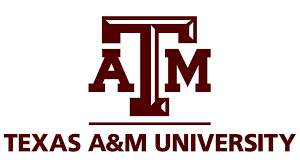
Texas A&M University’s Department of Educational Psychology offers a variety of Master of Science (M.S.) degree programs for students interested in pursuing a career in the field of psychology. The M.S. in Educational Psychology is a 36-credit hour program that offers specializations in learning sciences, bilingual education, and gifted and talented education. Core courses cover topics such as research methods, statistics, and human development, while electives allow students to tailor their program to their specific interests.
All of the programs offered are accredited by the Southern Association of Colleges and Schools Commission on Colleges (SACSCOC). In addition, the M.S. in School Psychology program is accredited by the National Association of School Psychologists (NASP).
- Location: College Station, Texas
- US News Ranking: 67 in National Universities
- Cost Per Credit: Graduate students who are residents of the state pay $77 per credit hour for tuition, while non-resident and international students are required to pay $459 per credit hour.
Baylor University – Master of Arts in Educational Psychology

Baylor University’s Master of Science degree in Educational Psychology is a comprehensive program that blends theory and practice to prepare students for diverse careers in education and research. This program is accredited by the Southern Association of Colleges and Schools Commission on Colleges (SACSCOC), ensuring the highest standard of academic quality.
To earn the degree, students must complete 36 credit hours of coursework, including core courses in learning and cognition, human development, and research methods. The program also offers a range of elective courses, such as motivation, social psychology, and educational statistics, allowing students to customize their education based on their interests and career goals. Students who want to pursue independent research can opt for the thesis option, which provides hands-on experience in conducting research and presenting findings.
- Location: Waco, Texas
- US News Ranking: 77 in National Universities
- Cost Per Credit: The cost of tuition for the program is $1,200 per credit hour, and a $100 administrative fee is charged each term. In the third year of the program, students will participate in a full-time, paid internship. It’s important to note that tuition and fees are subject to change and may increase annually. For any inquiries, please contact Julie Ivey at Julie_Ivey@baylor.edu.
Master of Arts in Clinical Community Psychology
Texas Southern University – Master of Arts in Clinical Community Psychology

Texas Southern University’s graduate program in psychology is accredited by the Southern Association of Colleges and Schools Commission on Colleges (SACSCOC). The program provides students with the opportunity to pursue a Master of Arts degree in Psychology, with a concentration in either Counseling or General/Experimental Psychology. The program’s curriculum includes coursework in advanced research methods, statistics, and a wide range of topics related to human behavior and mental processes.
Both concentrations require the completion of 36 credit hours of coursework, including a thesis or non-thesis option. Graduates of the program are prepared for careers in a variety of fields, including academia, research, counseling, and human services.
- Location: Houston, Texas
- US News Ranking: 331-440 in National Universities.
- Cost Per Credit: $6,000 per term or $18,000 per year, with the total cost of the six-term program amounting to $36,000. This comprehensive pricing includes tuition, course materials, and books, ensuring that students have everything they need to excel in their studies without additional expenses.
Master’s in School Psychology
Stephen F. Austin State University – Master’s in School Psychology

Stephen F. Austin State University (SFA) offers a comprehensive graduate program in school psychology leading to a Master of Arts degree in School Psychology, which prepares students for certification as Licensed Specialists in School Psychology (LSSP) in the state of Texas. The program is accredited by the National Association of School Psychologists (NASP) and meets the Texas State Board of Examiners of Psychologists requirements for certification as a Licensed Specialist in School Psychology (LSSP).
Students are required to complete 69 credit hours of coursework, including foundational and applied coursework, practicum experiences, and a culminating internship. Foundational coursework covers topics such as theories and principles of learning and development, cognitive assessment, and behavioral assessment.
Applied coursework includes instruction in behavioral consultation, counseling, and intervention strategies. The program also requires a 1200-hour internship in a school setting, which provides students with hands-on experience in conducting assessments, developing interventions, and providing counseling services to students and families.
- Location: Nacogdoches, Texas
- US News Ranking: 54 out of 120 Regional Universities West
- Cost Per Credit: Texas residents pay $7,433 in tuition and fees while non-Texas residents pay $14,777. Part-time students or full-time students taking extra credits pay $567 per credit hour if they are Texas residents and $919 per credit hour if they are out-of-state students.
Texas Tech University – Master’s in Social Psychology

Texas Tech University provides students with an opportunity to earn a Master of Arts in Social Psychology with an emphasis on Applied Social Psychology, geared towards those eager to apply social psychological theories and research to tackle real-world issues. Accredited by the Southern Association of Colleges and Schools Commission on Colleges, the program requires the completion of 36 credit hours and can be pursued either full-time or part-time.
Students can choose from diverse courses such as Advanced Research Methods, Diversity and Social Justice, Organizational Psychology, and Social Psychology of Health and Well-Being, as well as Applied Social Psychology, and Group Processes.
- Location: Lubbock, Texas
- US News Ranking: 219 in National Universities
- Cost Per Credit: Resident students are charged $25,688 for tuition and fees, while non-resident students are charged $33,216.
Our Lady of the Lake University – M.S. in School Psychology
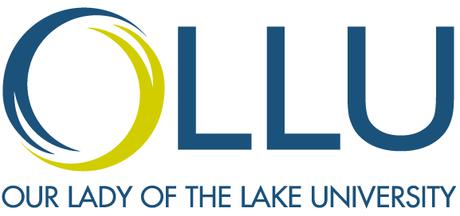
At Our Lady of the Lake University, students can earn a Master of Science degree in School Psychology. This program is designed to provide students with the knowledge and skills to work as School Psychologists and to help children achieve their full potential.
The program is accredited by the National Association of School Psychologists (NASP) and the Texas State Board of Examiners of Psychologists. To graduate, students must complete 60 credit hours of coursework, which includes a combination of core courses, electives, and field experiences.
Core courses cover topics such as intellectual and cognitive assessment, child and adolescent development, counseling and intervention, and behavioral assessment and intervention. Students can choose from electives such as family therapy, consultation and collaboration, and advanced behavioral assessment and intervention.
- Location: San Antonio, Texas
- US News Ranking: 331-440 in National Universities
- Cost Per Credit: The cost for the Master’s degree program, whether taken full-time or part-time, is $981 per credit hour.
University of Texas San Antonio – M.A. in School Psychology

The University of Texas at San Antonio (UTSA) offers a Master of Education (MEd) in Educational Psychology program that equips students with the necessary knowledge and skills to become proficient educators, researchers, and evaluators in diverse educational environments. This program is accredited by the Southern Association of Colleges and Schools Commission on Colleges (SACSCOC).
In order to obtain the MEd in Educational Psychology degree, students must complete 36 credit hours of coursework, consisting of fundamental courses in human development, learning theory, research methods, and statistics. Furthermore, students have the flexibility to select from a range of elective courses that cater to their interests, such as motivation, cognition, and instruction, special education, and educational assessment and evaluation.
- Location: San Antonio, Texas
- US News Ranking: 121 in Best Education Schools
- Cost Per Credit: To obtain information about tuition fees and other associated costs, please visit https://future.utsa.edu/requestinfo/.
Trinity University – Master of Arts in School Psychology

The Master of Arts degree in School Psychology (MA) offered by Trinity University provides students with the necessary skills and knowledge to provide valuable support to students, teachers, and families in educational settings. The program has received accreditation from the National Association of School Psychologists (NASP) and meets the standards of the Texas State Board of Examiners of Psychologists (TSBEP), ensuring top-quality education.
Students must complete 48 credit hours of coursework to earn the degree, including core courses in psychological assessment, intervention strategies, and ethics in school psychology. The program also offers practical experience through supervised fieldwork, allowing students to apply their knowledge and skills in real-world settings. Moreover, students can choose from a range of elective courses, such as child and adolescent psychopathology, multicultural issues in school psychology, and consultation and collaboration, to tailor their education to their specific interests and career goals.
- Location: San Antonio, Texas
- US News Ranking: 55 in National Liberal Arts Colleges
- Cost Per Credit: We advise you to contact directly by their email at inquiry@tua.edu.ph. with any questions on program cost & related learning fees.
Master of Science in Applied Psychology
Tarleton State University – M.S. in Applied Psychology

The Master of Science in Applied Psychology program at Tarleton State University is designed to equip students with the knowledge and skills needed to pursue careers in a variety of fields, such as business, industry, government, and human services. The program is accredited by the Southern Association of Colleges and Schools Commission on Colleges (SACSCOC).
By completing 36 semester credit hours of coursework, which includes core courses in research methods, statistics, and various areas of psychology like developmental psychology, cognitive psychology, and social psychology, students can earn the degree. Students also have the option to choose from a range of elective courses, such as forensic psychology, organizational psychology, and abnormal psychology.
- Location: Stephenville, Texas
- US News Ranking: 331-440 in National Universities
- Cost Per Credit: To receive personalized details on Tarleton’s M.S. in Applied Psychology, get in touch with Dr. Jonali Baruah, who serves as the Graduate Advisor and Associate Professor, via email at baruah@tarleton.edu.
Lamar University – Master of Science in Applied Psychology

Lamar University’s Master of Science in Applied Psychology degree program offers specialized study in either industrial/organizational psychology or clinical psychology, preparing students for careers in business, mental health agencies, and other related fields. The program is accredited by the Southern Association of Colleges and Schools Commission on Colleges (SACSCOC).
To be eligible for admission, applicants must have a bachelor’s degree in psychology, including 24 semester hours (including a course in research methods), a statement of purpose, and three letters of recommendation that speak to the applicant’s suitability for graduate study and professional conduct. Applicants with a cumulative GPA of 3.0 or higher and a GPA of at least 3.0 in psychology courses will be considered for admission. GRE scores are not required.
- Location: Beaumont, Texas
- US News Ranking: 331-440 in National Universities
- Cost Per Credit: Out-of-state students relocating would pay an average of $764 per credit hour, whereas in-state students are eligible for a reduced fee of $355 per credit hour.
Master’s of Science in Psychological Science
Texas Woman’s University – Master’s of Science in Psychological Science

Texas Woman’s University (TWU) offers a Master of Arts (M.A.) in Psychological Science program, which is designed to prepare students for further doctoral studies or careers in research and teaching. The program is accredited by the Southern Association of Colleges and Schools Commission on Colleges (SACSCOC).
To earn the degree, students are required to complete 36 semester credit hours of coursework, which includes core courses in research methods, statistical analysis, and foundational knowledge in areas such as developmental psychology, cognitive psychology, and social psychology. Additionally, students can choose from a selection of elective courses that cover topics such as advanced statistics, neuroscience, and health psychology.
- Location: San Antonio, Texas
- US News Ranking: 331-440 in National Universities
- Cost Per Credit: Citizen of Texas graduate students pay $270 per credit hour, while foreign students pay $685 per credit hour.
University of Texas at Dallas – Master of Science in Psychological Sciences

Unlock the secrets of the human mind with the Master of Science in Psychology program at the University of Texas at Dallas (UTD). This program is the perfect choice for students who want to explore the fascinating world of psychology and its applications in different fields. Accredited by the Southern Association of Colleges and Schools Commission on Colleges (SACSCOC), the program requires the completion of 36 credit hours of coursework.
Students will delve into a wide range of topics, including research methods, statistics, and various areas of psychology, such as cognitive, social, developmental, and clinical psychology. The program also offers elective courses, such as advanced research methods, cognitive neuroscience, and health psychology, that allow students to personalize their education and delve deeper into their interests.
- Location: Richardson, Texas
- US News Ranking: 151 in National Universities
- Cost Per Credit: You can access more information by filling out the form on this webpage: https://utdallas.my.salesforce-sites.com/form?formid=217803.
Master’s in Applied Behavior Analysis
University of North Texas – Master’s in Applied Behavior Analysis

The University of North Texas offers a Master of Science in Behavior Analysis program that is designed to prepare students to become competent behavior analysts. The program is accredited by the Association for Behavior Analysis International (ABAI) and meets the Behavior Analyst Certification Board (BACB) standards for certification as a Board Certified Behavior Analyst (BCBA).
The program requires the completion of 42 credit hours, which includes core courses in behavior analysis, research methods, and ethics. In addition, students are required to complete courses in advanced behavior analysis, applications of behavior analysis, and professional development.
- Location: Denton, Texas
- US News Ranking: #176 in Best National Universities
- Cost Per Credit: We advise you to contact directly by their email at admissions@untdallas.edu with any questions on program cost & related learning fees.
Master’s of Arts in Experimental Psychology
University of Texas at El Paso – Master’s of Arts in Experimental Psychology

Accredited by the Southern Association of Colleges and Schools Commission on Colleges (SACSCOC), the University of Texas at El Paso (UTEP) provides students with a Master of Arts degree in Experimental Psychology that aims to develop their knowledge and skills in psychological theories, research methodology, and statistics.
The program requires the completion of 30 credit hours, which includes core courses such as Experimental Design, Research Methods, and Advanced Statistical Analysis. Students can also choose from a range of elective courses, such as Cognitive Psychology, Sensation and Perception, and Social Psychology.
- Location: El Paso, Texas
- US News Ranking: 331-440 (National Universities)
- Cost Per Credit: We advise you to contact directly by their email at utepconnect@utep.edu with any questions on program cost & related learning fees.
Master’s in Human Factors Psychology
Texas Tech University – Master’s in Human Factors Psychology

Texas Tech University’s Master of Science in Human Factors is a fascinating program that delves into the complex ways that humans interact with technology and the environment. With accreditation from the Southern Association of Colleges and Schools Commission on Colleges, this program provides students with a solid foundation in human factors research and theory, preparing them for careers in industries such as aviation, healthcare, and technology.
The program consists of 36 credit hours, which can be completed on either a full-time or part-time basis. Students take a range of courses, including Human-Computer Interaction, Cognitive Psychology, Human Factors in Aviation, User-Centered Design, and more. They also have the opportunity to work on research projects, gaining hands-on experience in human factors research methodologies and techniques.
- Location: : Lubbock, Texas
- US News Ranking: 219 in National Universities
- Cost Per Credit: We advise you to contact directly by their email at admissions@ttu.edu with any questions on program cost & related learning fees.
Master of Arts in Psychological Research
Texas State University San Marcos – Master of Arts in Psychological Research
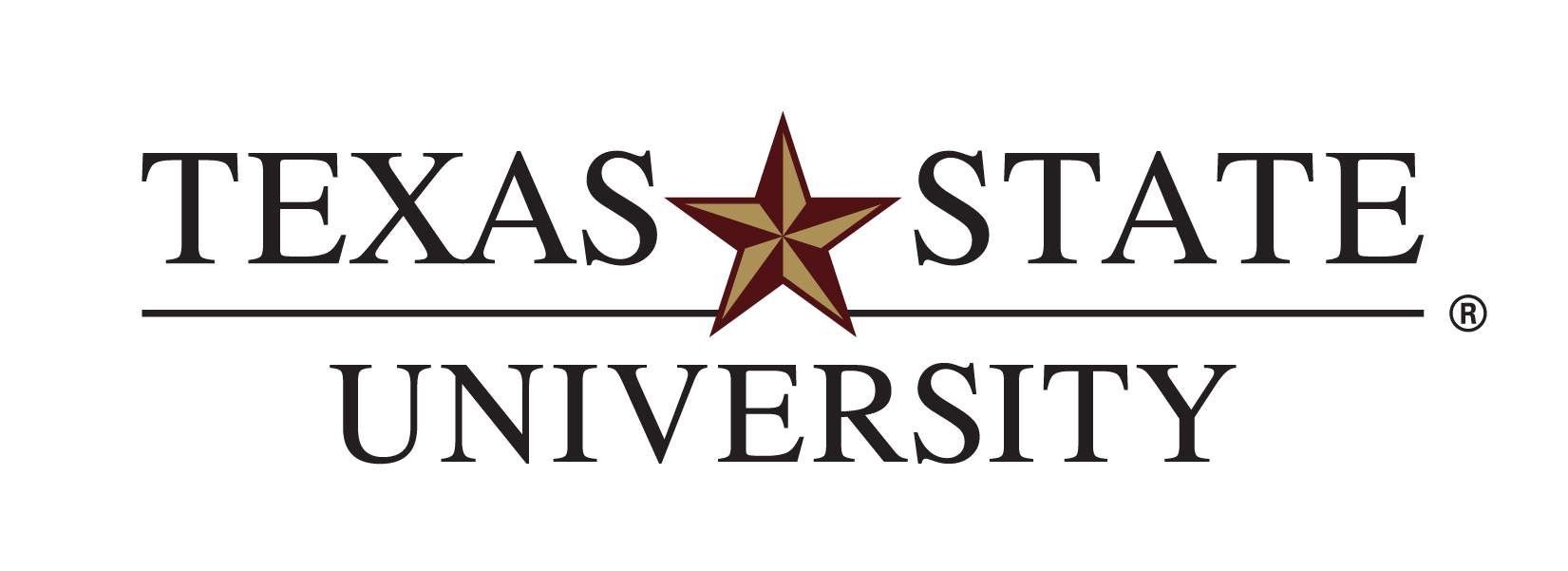
Are you looking to sharpen your research skills and take your professional career to the next level? Look no further than Texas State University’s Master of Arts in Psychological Research program! Accredited by the Southern Association of Colleges and Schools Commission on Colleges, this program offers a comprehensive curriculum that equips students with the research skills necessary for success in a wide range of professional settings.
With a total of 36 credit hours, this program is perfect for both full-time and part-time students. Coursework includes a variety of topics such as Advanced Research Methods, Applied Multivariate Analysis, and Statistical Modeling. However, what sets this program apart is the opportunity to apply your newfound knowledge through the completion of a research thesis.
- Location: San Antonio, Texas
- US News Ranking: 121 in Best Education Schools
- Cost Per Credit:: For the first credit, Texas residents can expect to pay approximately $716 in graduate tuition at Texas State University, while non-resident students can expect to pay approximately $1,131.
Master’s of Science in Clinical Science
University of Texas Southwestern Medical Center – Master’s of Science in Clinical Science

The University of Texas Southwestern Medical Center offers a unique and innovative Master of Science program in Clinical Science, designed for healthcare professionals who seek to advance their skills in clinical research. The program is accredited by the Southern Association of Colleges and Schools Commission on Colleges (SACSCOC).
Students will complete 36 credit hours of coursework, including a practicum experience, which provides hands-on training in clinical research. Graduates of the program will be prepared to conduct independent research, manage clinical trials, and contribute to the advancement of clinical science.
- Location: Dallas, Texas
- US News Ranking: 25 in Best Medical Schools
- Cost Per Credit: The cost of obtaining an MSCS degree with in-state tuition is estimated to be between $10,000 and $13,000.
Master of Science in Industrial/Organizational Psychology
St. Mary’s University – Master of Science in Industrial/Organizational Psychology

The St. Mary’s University Master of Arts degree in Industrial-Organizational Psychology is accredited by the Southern Association of Colleges and Schools Commission on Colleges (SACSCOC). This accreditation ensures that the program meets rigorous standards for academic quality and student learning outcomes.
The program requires the completion of 40 credit hours of coursework, which includes core courses in research methods, statistics, and various areas of psychology such as developmental psychology, social psychology, and cognitive psychology. Students can also choose from a range of elective courses, such as multicultural psychology, health psychology, and neuroscience.
- Location: San Antonio, Texas
- US News Ranking: 31 in Regional Universities West
- Cost Per Credit: We advise you to contact directly by their email at graduate@stmarytx.edu with any questions on program cost & related learning fees.
University of Houston Clear Lake – M.A. in industrial/Organizational Psychology

The University of Houston-Clear Lake (UHCL) offers a Master of Arts degree in Industrial/Organizational Psychology (I/O Psychology) that prepares students for careers in various fields such as business, industry, government, and non-profit organizations. The program is accredited by the Southern Association of Colleges and Schools Commission on Colleges (SACSCOC).
To earn the degree, students must complete 40 semester credit hours of coursework, including core courses in research methods, statistics, and various areas of psychology, such as personnel psychology, organizational behavior, and leadership. Students can also choose from a variety of elective courses, such as training and development, work motivation, and performance appraisal.
- Location: Houston, Texas
- US News Ranking: 331-440 in National Universities
- Cost Per Credit: Graduate students in the I/O Psychology programme at the University of Houston pay $377 per credit hour if they are residents of Texas.
University of Texas at Arlington – Master of Science in Industrial and Organizational Psychology
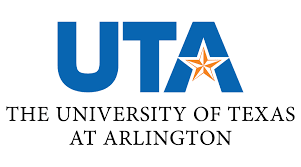
Looking to advance your career in human resources, organizational development, or applied research? The University of Texas at Arlington (UTA) has got you covered with their Master of Science degree in Industrial/Organizational Psychology (I/O Psychology). Not only will you gain a comprehensive understanding of research methodology and statistical analysis, but you’ll also delve into the fascinating sub-disciplines of I/O psychology, including employee selection, performance appraisal, and job analysis.
The 36-credit hour program boasts core courses in research methods and statistics, as well as a variety of electives to tailor your studies to your specific interests. Some of the elective courses include organizational development, diversity in the workplace, and training and development. And the best part? The program is accredited by the Southern Association of Colleges and Schools Commission on Colleges (SACSCOC), so you can trust that you’re getting a top-notch education.
- Location: San Antonio, Texas
- US News Ranking: 299 in National Universities
- Cost Per Credit: Graduate students pursuing a Master of Science in Industrial and Organizational Psychology are charged $29,242 for tuition and fees annually.To calculate the total cost of tuition and fees for full-time non-resident undergraduate students, add around $15,286 to the listed tuition and fees. For full-time non-resident graduate students, add approximately $12,442 to the listed tuition and fees.
Southern Methodist University – Accelerated M.S. in Organizational Psychology

By offering a comprehensive blend of coursework in psychology and business, Southern Methodist University’s (SMU) Master of Science degree in Organizational Psychology equips students with the knowledge and skills necessary for a career in human resources, consulting, and other related fields. Accredited by the Southern Association of Colleges and Schools Commission on Colleges (SACSCOC), this program is designed to provide students with a unique and in-depth understanding of the psychological factors that influence organizational behavior and performance.
In addition to core courses in research methods, statistics, and various areas of psychology, such as motivation, job analysis, and leadership, students have the opportunity to choose from a range of elective courses, such as conflict resolution, diversity in organizations, and coaching and mentoring. These courses allow students to tailor their education to their specific interests and career goals, making them valuable assets in the workforce. The program requires completion of 36 credit hours of coursework, enabling students to develop a deep understanding of the psychological factors that influence organizational behavior and performance.
- Location: Dallas, Texas
- US News Ranking: 72 in National Universities
- Cost Per Credit: Graduate students are charged a tuition of $1,755 per credit hour, plus the general student fee.
Master of Human-Computer Interaction & Human Factors
Rice University – Master of Human-Computer Interaction & Human Factors

Are you interested in exploring the intersection of psychology and technology? Rice University’s Master of Human-Computer Interaction and Human Factors (MHCI+HF) program might just be the perfect fit for you! As an accredited program by the Southern Association of Colleges and Schools Commission on Colleges (SACSCOC), Rice University is committed to providing you with a high-quality education in the field of human-computer interaction.
To complete the MHCI+HF program, you’ll need to fulfill 48 credit hours of coursework. This includes essential classes in user interface design, cognitive psychology, research methods, and statistical analysis. Along with these core courses, you’ll also have a variety of elective options, such as virtual reality, computer-mediated communication, and social computing, to help you gain a profound understanding of how technology affects human behavior and psychology.
- Location: Houston, Texas
- US News Ranking: 15 in National Universities
- Cost Per Credit: For the Master of Industrial-Organizational Psychology program, the tuition fee is $17,500 per semester or $35,000 annually.
Texas Psychology Licensing and Resources
Aspiring psychologists in Texas have a wealth of resources available to them to elevate their knowledge and experience in the field. Graduate students can access a range of programs and opportunities through the listed organizations below, which can aid them in their licensure preparation and equip them with the necessary skills and knowledge to thrive in their careers.
Texas State Board of Examiners of Psychologists: The Texas State Board of Examiners of Psychologists is responsible for setting the standards for licensure and renewal, and establishing ethical guidelines for the practice of psychology by licensed specialists in school psychology, psychologists, and psychological associates across Texas.
By enforcing rigorous standards, the Board helps to promote public safety and confidence in the field of psychology. If any licensed practitioner falls below these standards or violates ethical guidelines, the Board investigates complaints of professional misconduct and takes appropriate disciplinary action to protect the public.
Texas Psychologist License Lookup: With the Texas Psychologist License Lookup, important information is just a few clicks away! The Texas State Board of Examiners of Psychologists provides an online platform known as the Texas Psychologist License Lookup, which is designed to help the public verify the licensure of psychologists in the state of Texas.
This resource is also incredibly valuable for psychologists, as it allows them to easily verify the licensure and qualifications of colleagues and potential employees. In addition to licensure verification, the Texas Psychologist License Lookup also provides information on any disciplinary actions that have been taken against a licensed psychologist.
National Alliance on Mental Illness Texas: NAMI Texas is a non-profit organization that focuses on supporting individuals and families affected by mental illness, and promoting mental health education and advocacy. The organization consists of nearly 2,000 members, including individuals living with mental illness, family members, friends, and professionals. NAMI Texas is committed to improving the quality of life of all individuals living with mental illness and their families by providing them with access to resources, support, and education.
Through its advocacy efforts, NAMI Texas also strives to raise awareness about mental health issues and ensure that the needs of individuals with mental illness are taken into account in policy-making and community services.
Federation of Texas Psychiatry: Created in 2004 to unite Texas’ professional psychiatric organizations and represent over 50,000 physicians in the state, The Federation of Texas Psychiatry’s mission is to promote the common interests of psychiatrists and work towards improving the quality of psychiatric care for patients in Texas.
As an organization that represents the interests of psychiatrists, the Federation of Texas Psychiatry indirectly helps psychologists by promoting the provision of quality psychiatric care in Texas. This includes advocating for policies that support access to mental health services and resources for patients, as well as providing networking opportunities for mental health professionals in the state.
Southwestern Psychological Association: The Southwestern Psychological Association (SWPA) is a professional organization for psychologists, students, and researchers in the southwestern region of the United States. One of the key ways in which SWPA aids psychologists is by providing them with a platform for networking and collaboration. The organization hosts an annual conference, which offers symposia, poster sessions, and invited talks on a wide range of topics in psychology.
Moreover, SWPA advocates for psychologists and the field of psychology through its involvement in policy and public affairs at the state and national levels. The organization works to promote the importance of psychological research and practice, and to ensure that the needs of the psychology community are taken into account in policymaking.
Dallas Society for Psychoanalytic Psychology: The Dallas Society for Psychoanalytic Psychology (DSPP), which is Division 39 of the APA, is committed to exploring and promoting psychoanalytic theory and its applications as a basis for understanding human experience and for various forms of psychotherapy.
DSPP’s membership includes professionals from various mental health fields, such as psychologists, licensed professional counselors (LPCs), social workers, physicians, and students. Furthermore, DSPP offers continuing education opportunities to help members stay up-to-date with the latest research and advancements in psychoanalytic theory and practice. The organization also sponsors training programs and workshops to enhance members’ clinical skills and expertise.
Texas Association of School Psychologists: The Texas Association of School Psychologists (TASP) is an organization that works to promote the well-being of children and youth in educational settings throughout the state of Texas. TASP is composed of licensed school psychologists and others interested in promoting high-quality education and mental health services for children and families.
One of the primary benefits of membership in TASP is access to a community of fellow psychologists in Texas who are committed to improving the lives of children and families. Through conferences, workshops, and other events, members have the opportunity to connect with other professionals in their field, share best practices, and stay up-to-date on the latest research and trends.
Houston Psychological Association: Engaging with the Houston Psychological Association (HPA) offers over 200 trained psychologists in the greater Houston, Texas area opportunities for professional growth, networking, and staying up-to-date with current evidence-based practices, legal and professional issues.
HPA’s diverse membership includes those trained in Counseling, Clinical, Educational, Neuro-, Industrial/Organizational, and School Psychology, making it a valuable resource for psychologists in various fields to connect and collaborate with each other.
Texas Association for Behavior Analysis: The Texas Association for Behavior Analysis (TxABA) is a non-profit organization that is committed to advancing the field of behavior analysis in Texas. They strive to disseminate knowledge from the science of behavior analysis and provide resources to the behavior analytic community and the public in Texas in an ethical and high-quality manner.
This is achieved through various activities such as training and continuing education programs, scientific conferences and workshops, and the promotion of ethical practices in the field. The organization is made up of members who are behavior analysts and other professionals who share a common interest in promoting the science and application of behavior analysis to improve the world we live in.
Bexar County Psychological Association: Bexar County Psychological Association (BCPA) is an organization consisting of individuals who practice, teach, and/or study psychology in the Bexar County, Texas area. BCPA is committed to being inclusive of all areas within psychology, including but not limited to psychotherapy, psychological assessment, consultation, program evaluation, quantitative and qualitative research, school psychology, industrial/organizational psychology, neuropsychology, and experimental psychology.
BCPA aims to provide opportunities for professional development and networking among members, as well as contribute to the advancement of psychology as a whole.
Capital Area Psychological Association: The Capital Area Psychological Association (CAPA) is a professional organization dedicated to supporting and connecting psychologists in the greater Austin, Texas area. CAPA welcomes psychologists from a variety of fields, including clinical, counseling, educational, and research psychology, among others.
The organization provides its members with opportunities for professional growth and development through networking events, continuing education courses, and access to valuable resources. By fostering a community of like-minded professionals, CAPA helps psychologists stay up-to-date with the latest research, trends, and best practices in their field.
Capital Area Psychological Association: Licensed at the master’s level, the Texas Association of Psychological Associates represents psychology practitioners who offer a wide range of services, including assessment, consultation, and therapy. This profession has been regulated in Texas for over fifty years, and practitioners must have a minimum of a master’s degree in psychology and have passed the Examination for Professional Practice in Psychology.
After completing at least 3,000 hours of practice experience under the supervision of a licensed psychologist, they can engage in independent practice. Similar to other regulated licenses, Licensed Psychological Associates provide assessments, clinical interventions, psychotherapy, and behavior interventions for individuals with cognitive impairment or autism spectrum disorder.
Texas Association of Psychological Associates:The Texas Association of Psychological Associates (TAPA) is a professional organization that represents Licensed Psychological Associates (LPAs) in Texas. TAPA is also dedicated to providing professional development opportunities for all master’s degree-holding psychology professionals in the state.
LPAs must hold at least a master’s degree in psychology and pass the Examination for Professional Practice in Psychology to be licensed. Through TAPA, LPAs and other professionals can stay current with the latest developments in the field and further their careers.
Houston Psychoanalytic Society: The Houston Psychoanalytic Society (HPS) was established in 1947 and is a non-profit organization dedicated to promoting the study, understanding, and application of psychoanalytic theory and practice. The HPS offers a range of educational programs, workshops, and seminars that allow members to deepen their knowledge and refine their skills in the field of psychoanalysis.
One of the primary goals of the HPS is to provide a supportive community for its members. The organization brings together psychoanalytic professionals and students from diverse backgrounds and provides a forum for them to connect and collaborate. Members of the HPS have access to ongoing professional development opportunities, including continuing education courses, mentorship programs, and research initiatives.
San Antonio Society for Psychoanalytic Studies: Founded in 1961, The Southern Association for the Study of Psychiatry and Science (SASPS) has since become a professional organization for mental health professionals, researchers, and academics who share an interest in the intersection of psychiatry and science.
SASPS hosts an annual conference that provides a platform for members to present and discuss research and ideas related to the field. The conference includes keynote speeches, presentations, and workshops, all focused on the latest research and developments in psychiatry and science.
Collin County Psychological Association: Starting with an engaging introduction, the Collin County Psychological Association (CCPA) is a community of psychology professionals and students who come together to foster interaction and provide resources for their exclusive use. The CCPA offers monthly meetings featuring subject matter experts who present relevant topics related to the practice of psychology. These Professional Development Series courses are worth 1.5 Continuing Education Units (CEUs) and are available at no charge to CCPA members.
With the goal of enhancing emotional well-being in society, CCPA’s mission is to support, enrich, and advance the practice of psychology in Collin County and surrounding areas, consistent with the scientific and ethical standards of the profession. The association also assists in the education and training of psychologists while encouraging and participating in the dissemination of psychological knowledge and information for the benefit of its members and the community at large.
Austin Psychoanalytic: Austin Psychoanalytic is an organization comprised of mental health professionals, including psychologists, social workers, licensed professional counselors, marriage and family therapists, and psychiatrists, who are committed to upholding and promoting psychoanalytic and psychodynamic theories and practices in Central Texas. Through their interdisciplinary approach, Austin Psychoanalytic seeks to engage with mental health professionals, students, non-clinical scholars, and colleagues in other fields to contribute their unique experiences and wisdom to the field of psychoanalytic thought.
Members have the opportunity to interact with like-minded individuals, share their expertise, and stay up-to-date on the latest developments in psychoanalytic thought. Founded in 1988, Austin Psychoanalytic is a local chapter of the Division of Psychoanalysis (Division 39) of the American Psychological Association. The organization welcomes those who are new to contemporary psychoanalytic theory and practice to participate in their activities and explore the exciting developments in the field over the past 110 years.
Texas Student Psychological Association: As an organization, The University of Texas at Tyler School Psychology Association (UTTSPA) provides its members with a variety of opportunities for growth and development, including professional networking events, educational workshops, and community outreach programs.
UTTSPA is committed to advancing the profession of school psychology by promoting evidence-based practices and innovative research. The association encourages its members to collaborate and share knowledge and experiences, empowering them to become advocates for change and champions of progress.
Whether you are a seasoned professional or just starting your journey as a school psychologist, UTTSPA offers a supportive and inclusive environment where you can connect with like-minded individuals and gain valuable insights and skills that will help you thrive in your career.
Texas Data and Mental Health Statistics
In the field of psychology, data plays a crucial role in understanding mental health issues and developing effective treatment plans. Accurate data and statistics help psychologists identify trends, track progress, and make informed decisions about the care they provide to their clients.
To this end, Texas has several resources and organizations that focus on data and mental health statistics, providing psychologists with the tools and knowledge they need to excel in their field. With access to this information, psychologists can enhance their skills and deliver more effective care to their clients.
- According to the Texas Department of State Health Services, in 2020, suicide was the 11th leading cause of death in Texas, with a total of 3,822 suicides reported.
- Approximately one in five adults in Texas experiences a mental illness each year, according to the National Alliance on Mental Illness (NAMI). This prevalence is higher than the national average, indicating a greater need for mental health services and resources in the state.
- In Texas, the prevalence of serious mental illness is estimated to be around 4%, which is slightly lower than the national average of 5%.
- As per the data from the Kaiser Family Foundation in 2020, about 23% of adults in Texas reported experiencing symptoms of anxiety or depression, which is slightly more than the national average of 21%.
- The Texas Health and Human Services Commission reports that there is a shortage of mental health professionals in Texas, with many counties having no practicing psychiatrists or psychologists. This can lead to limited access to mental health services for individuals in certain areas of the state.






